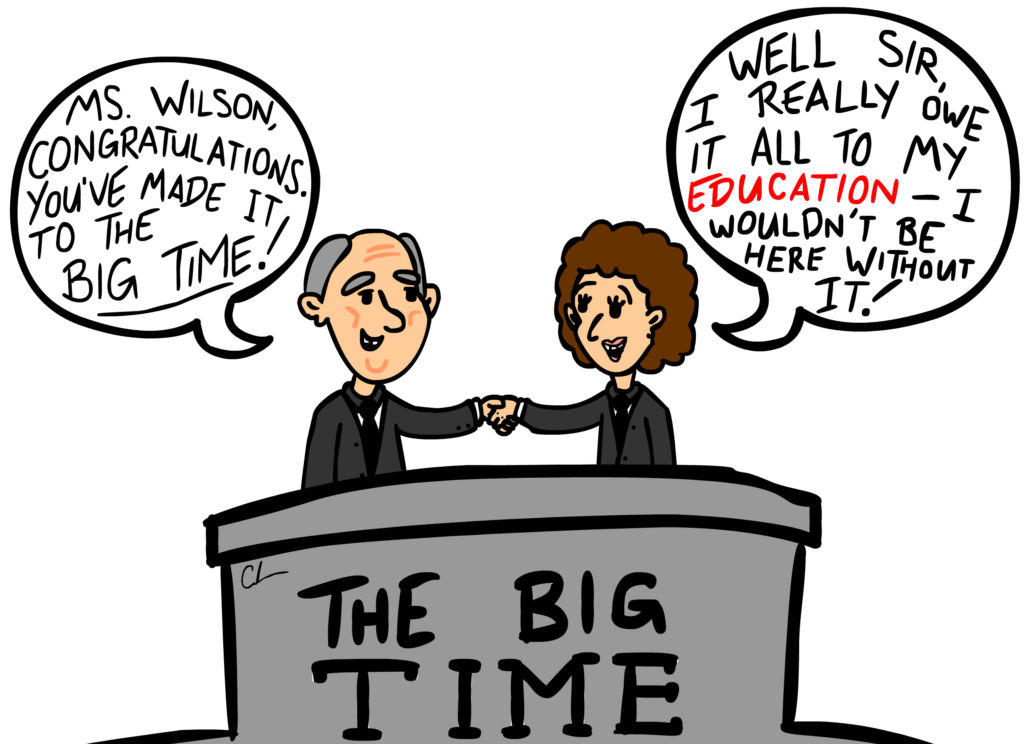Kentucky’s education system pushes the importance of a higher education with 60 percent of
students enrolled in college after graduating from public high schools, according to the 2016
Kentucky High School Feedback Reports.
This somewhat contrasts with former Gov. Matt Bevin’s unpopular stance of wanting to make
Kentucky a center of engineering and manufacturing in the country.
In a speech to the Governor’s Conference on Postsecondary Education Trusteeship he called
to eliminate programs that don’t graduate students who are able to fill high-paying and in-
demand jobs. Bevin said universities shouldn’t be “maintaining something that’s not an asset of
any value, that’s not helping to produce that 21st-century educated workforce.”
Obtaining an undergraduate degree should not focus on training individuals to fit the jobs
available in society. Receiving an extensive education is the value in obtaining a college degree.
Of course, many majors do not have a lot of flexibility in terms of careers chosen after
graduating.
But college isn’t for everybody, and not everyone in college knows what workforce they will
enter after graduating.
Getting a higher education should have more of a focus on learning and becoming
knowledgeable about the field the student chooses. The idea that Kentucky universities should
produce people to be mindless machines is absurd.
High schools propel students to attend college and earn a degree, and many don’t see that
they have other options. Many career choices are still available without degrees, and skilled
trade workers are just as important.
President of the Kentucky Council on Postsecondary Education Aaron Thompson discussed
taking the nontraditional path and how the importance of a higher education still comes into
play.
“But if you want to learn a skilled trade with real earning potential, like plumbing or welding,
you will need some education or training beyond high school,” Thompson said.
Thompson refers to community and technical colleges, which people pursuing a profession in
trade skills often need to attend. To acquire a job in Kentucky associated with trade skills,
students must attend community and technical colleges to receive training catered to their
trades.
For those who do not pursue vocational career paths, college might be the better route. It isn’t
likely that most people will have the same college dropout success stories as Bill Gates and
Mark Zuckerberg.
A college degree, no matter the major or area, will help the average person earn a higher
income. Careers that accept only a high school diploma are disappearing as time passes.
Employers are looking for a higher education of some sort, especially as the hiring process
becomes more competitive.
College is costly, and for many it isn’t worth the debt. Students question if the post-graduation
income will eventually pay off.
A recent study from Georgetown University found that, on average, college graduates earn $1
million more in earnings over their lifetime. Pew Research Center found the average annual
income gap between high school and college graduates is around $17,500.
Thompson said associate degree holders in Kentucky earn about $4,500 more a year than
high school graduates.
Kentucky might be pushing high schoolers to get a college education, but the nation is not
following the same patterns. The National Student Clearinghouse Research Center reported
that higher education institutions of all kinds have 2 million fewer students now than they did in
2009.
Public schools prompt students toward college
November 14, 2019

More to Discover




























































































